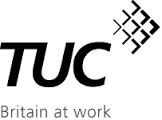ATIVE
 COMING SOON: JEREMY AND FRIENDS
COMING SOON: JEREMY AND FRIENDS
Reform Research Trust – Charity Number: 1103739 – has been reported to the Charities Commission by Andrew Robertson, the investigative journalist behind Social Investigations, an organisation that specialises in in-depth research into political matters of social interest.
 Reform is a free market think tank, whose mission according to their website, is to ‘set out a better way to deliver public services and economic prosperity.’ They are also an official charity, although, as Robertson demonstrates, not in the traditional sense. The Oxford English Dictionary describes a charity as ‘an organisation set up to provide help and raise money for those in need’ and according to the Charity Commission ‘the guiding principal of charity law is that charities should be, and be seen to be, independent from party politics.’ Robertson’s in-depth investigation of Reform has found that their power base rests almost entirely with the Conservative party. He says that Reform’s claim to independence is based on having one Liberal Democrat (Jeremy Browne) and two Labour members (Lord Warner and MP Frank Field) and a Conservative MP, (Julian Smith) on their advisory team. These however do not represent the overall dominance of the organisation towards the Conservative party, which can be seen by the power base of the founders and trustees and Reform doesn’t exist to give a voice to the voiceless, but is acting rather to leverage money from the public sector into the hands of the corporations, some of which just happen to be partners of the Reform ‘charity’.
Reform is a free market think tank, whose mission according to their website, is to ‘set out a better way to deliver public services and economic prosperity.’ They are also an official charity, although, as Robertson demonstrates, not in the traditional sense. The Oxford English Dictionary describes a charity as ‘an organisation set up to provide help and raise money for those in need’ and according to the Charity Commission ‘the guiding principal of charity law is that charities should be, and be seen to be, independent from party politics.’ Robertson’s in-depth investigation of Reform has found that their power base rests almost entirely with the Conservative party. He says that Reform’s claim to independence is based on having one Liberal Democrat (Jeremy Browne) and two Labour members (Lord Warner and MP Frank Field) and a Conservative MP, (Julian Smith) on their advisory team. These however do not represent the overall dominance of the organisation towards the Conservative party, which can be seen by the power base of the founders and trustees and Reform doesn’t exist to give a voice to the voiceless, but is acting rather to leverage money from the public sector into the hands of the corporations, some of which just happen to be partners of the Reform ‘charity’.
 All of the co-founders have links to the Conservative party.
All of the co-founders have links to the Conservative party.
- Reform is recognised as part of the Conservative party movement by Conservativehome.
- Two MPs to emerge from Reform both belong to the Conservative party
- Two of the trustees have provided money to individuals in the Conservative party
- Two of the trustees and a director have advised two Conservative MPs
- Andrew Haldenby, Nick Herbert and Patrick Barbour who set up Reform Research Trust in 2002 all have links to the Conservative party.
 In 2009, just before the last election, Reform produced a report “The end of entitlement” in which they advocated a strong case for ending welfare entitlement for the middle classes. More chillingly though they also urge the future government to undertake a radical privatisation programme of public services singling out the NHS for the biggest hit of all. On welfare benefits they suggest:
In 2009, just before the last election, Reform produced a report “The end of entitlement” in which they advocated a strong case for ending welfare entitlement for the middle classes. More chillingly though they also urge the future government to undertake a radical privatisation programme of public services singling out the NHS for the biggest hit of all. On welfare benefits they suggest:
“Where possible, replace social security benefits with private provision, with private insurance being a potentially useful but largely underutilised tool, particularly for disability but also in other areas.”
And on the NHS:-
“The closure of hospital services, in most cases due to a redesign of service provision, will be one of the best ways for the NHS to reduce activities and control costs….Commit to greater plurality in supply and reverse the “NHS preferred provider” policy. The ability of competition to drive better standards and productivity growth is crucial for ensuring that spending reductions do not lead to “salami slicing cuts” and a decline in quality…Only 3 per cent of the NHS budget is spent by private sector health providers, while a third of hospitals in France and Switzerland and a half of hospitals in Germany are privately run.”
And:-
“No ring fence for the health budget.The vast majority of expenditure is directed on the front line and this is where costs must be saved. Public sector pay and conditions should reflect public finances and performance. Abolish national pay bargaining
Reduce pay for doctors and senior managers by 10 per cent”
Remember, this was written before the election by an outfit with strong links to the Tories and sponsored by, among others, some of the biggest companies in the private healthcare business. Nearly all of this advice has been adopted already, some of it admitted to but some of it repeatedly denied by Cameron and crew. Witness for instance Cameron’s most recent lies in parliament when he claimed on three occasions that government were spending £12.7 billion extra on the NHS.(http://skwalker1964.wordpress.com/2013/06/09/smith-shapps-now-cameron-lies-to-parliament-on-nhs-stats/)
 Andrew Robertson discovered the extent and reach of the ‘invisible hand’ of corporate capitalism behind Reform and its nothing less than breathtaking. When asked about this Reform disingenuously claimed:-
Andrew Robertson discovered the extent and reach of the ‘invisible hand’ of corporate capitalism behind Reform and its nothing less than breathtaking. When asked about this Reform disingenuously claimed:-
‘We are keen to involve corporate organisations in our research because their expertise is often left out of the Whitehall policy discussion.’
Oh yeah?
As Robertson points out Reform’s corporate partners represent some of the most powerful companies in the country, including the likes of Citigroup, KPMG, GlaxoSmithKline and Serco. Partners are asked to donate £7,500 (or more if they choose), annually to the charitable Reform Research Trust and currently 31 companies across all the key sectors are only too willing to part with this amount. Such sums of money are of little consequence to these global companies, and in return their agenda of further outsourcing makes its way to government ears through newspapers, research reports and key events.
In fact 9 of the companies who are listed as corporate partners of Reform employ members of the House of Lords on their payroll. G4S, who are at the heart of government consideration for contracts on security and policing, have former Labour Secretary of State for Defence, Lord Reid, as a director. Since 2010, G4S have had 17 government meetings and 5 oral presentations. Serco, the public services giant, has billions of pounds worth of government contracts, and also has Lord Filkin as an advisor on public affairs. At the time of reporting last October, Robertson found they had met the government on at least 36 occasions since 2010. Possibly more times than Rupert Murdoch and his friends.
And an annual donation is not the only way these corporations give money to Reform. One key element of their work is to set up meetings and events to bring together MPs and representatives from the various corporations willing to pay them money. In 2011 alone, 68 different companies supported Reform, either via donation or sponsorship, totalling a weighty sum of £770,000. However, according to the Charity Commission website, their total income is over £1.25 Million.
 For example, on Monday 24th September last year health minister, Norman Lamb, headed up the table at a policy dinner sponsored by the UK’s biggest private hospital company, BMI Healthcare. General Healthcare Group, who own BMI Healthcare, gave Reform £24,500 in 2011 and were presumably covering the costs of the meal. BMI Healthcare came to the public’s attention back in July 2012 when the Independent revealed how the executive director of the private BMI Meriden Hospital, Bernie Creaven, sent a letter instructing doctors to ‘artificially delay operations on non-paying patients to encourage them to pay fees.’ ( http://www.independent.co.uk/life-style/health-and-families/health-news/private-hospital-told-doctors-to-delay-nhs-work-to-boost-profits-7962582.html).
For example, on Monday 24th September last year health minister, Norman Lamb, headed up the table at a policy dinner sponsored by the UK’s biggest private hospital company, BMI Healthcare. General Healthcare Group, who own BMI Healthcare, gave Reform £24,500 in 2011 and were presumably covering the costs of the meal. BMI Healthcare came to the public’s attention back in July 2012 when the Independent revealed how the executive director of the private BMI Meriden Hospital, Bernie Creaven, sent a letter instructing doctors to ‘artificially delay operations on non-paying patients to encourage them to pay fees.’ ( http://www.independent.co.uk/life-style/health-and-families/health-news/private-hospital-told-doctors-to-delay-nhs-work-to-boost-profits-7962582.html).
 Robertson goes on to tell us that Reform is at the forefront of promoting the policy of outsourcing hospitals. In February 2012, Circle became the first company to start running an NHS hospital after being given a 10-year contract to run Hitchingbrooke hospital in Cambridge. Just 6 months into its tenure, Circle produced a press release telling us how they have cut waiting times, improved care and delivered savings. This announcement was enough for the media, and the Telegraph in particular, to move into action; they hailed the hospital a success despite only 5% of the tenure being complete.
Robertson goes on to tell us that Reform is at the forefront of promoting the policy of outsourcing hospitals. In February 2012, Circle became the first company to start running an NHS hospital after being given a 10-year contract to run Hitchingbrooke hospital in Cambridge. Just 6 months into its tenure, Circle produced a press release telling us how they have cut waiting times, improved care and delivered savings. This announcement was enough for the media, and the Telegraph in particular, to move into action; they hailed the hospital a success despite only 5% of the tenure being complete.
![]() What followed was a sequence of articles written by Reform for the Telegraph that promoted the benefits of hospital outsourcing; a policy that will benefit both Circle Health, who were the former employers of Reform’s deputy director, Nick Seddon, and of course the UK’s largest hospital group, BMI Healthcare.
What followed was a sequence of articles written by Reform for the Telegraph that promoted the benefits of hospital outsourcing; a policy that will benefit both Circle Health, who were the former employers of Reform’s deputy director, Nick Seddon, and of course the UK’s largest hospital group, BMI Healthcare.
http://www.telegraph.co.uk/comment/telegraph-view/9444479/Hope-for-the-NHS.html
http://www.telegraph.co.uk/health/7886304/Is-the-NHS-getting-the-right-treatment.html
http://nhsvault.blogspot.co.uk/2012/08/hinchingbrooke-double-fail.html
 May 16th 2011, David Cameron gave a speech, which brought to an end the so-called ‘listening exercise’ during the controversial passage of the Health and Social Care Bill.In amongst the audience was David Worskett, who had ‘received an invitation to the PM’s big speech’. Mr Worskett, who had worked tirelessly throughout the Health bill ‘pause’ on behalf of the NHS Partners Network, was delighted to hear that Mr Cameron had ‘specifically added a sentence about the importance of patients being able to attend private hospitals if they wanted to…’Circle would also have been pleased, especially as they are members of the NHS Partners Network. On the same day as Cameron’s speech, Reform produced a report, titled: ‘It can be done’. The short report contained a series of six case studies on the involvement of private companies running public services, one of which, focused on Germany and how they are increasing the amount of hospitals run by for-profit companies. (http://www.reform.co.uk/attachments/files/50_It_Can_Be_Done_FINAL.pdf)
May 16th 2011, David Cameron gave a speech, which brought to an end the so-called ‘listening exercise’ during the controversial passage of the Health and Social Care Bill.In amongst the audience was David Worskett, who had ‘received an invitation to the PM’s big speech’. Mr Worskett, who had worked tirelessly throughout the Health bill ‘pause’ on behalf of the NHS Partners Network, was delighted to hear that Mr Cameron had ‘specifically added a sentence about the importance of patients being able to attend private hospitals if they wanted to…’Circle would also have been pleased, especially as they are members of the NHS Partners Network. On the same day as Cameron’s speech, Reform produced a report, titled: ‘It can be done’. The short report contained a series of six case studies on the involvement of private companies running public services, one of which, focused on Germany and how they are increasing the amount of hospitals run by for-profit companies. (http://www.reform.co.uk/attachments/files/50_It_Can_Be_Done_FINAL.pdf)
 In 2012 a report by the Bureau of Investigative journalism, highlighted how Circle had a net debt of 42.4m, an operating loss of £17m with a fall of total revenue of 2.4% from 2010. Not mentioned in any of the copious Telegraph articles we were being inundated with. (http://www.thebureauinvestigates.com/2012/06/06/circle-holdings-eyes-hospital-bid-as-share-price-plummets/) Nor did they highlight the fact that Circle are owned by companies and investment funds registered in the British Virgin Islands, Jersey and the Cayman Islands. Corporate Watch, a research group monitoring large corporations, produced a report, titled ‘An unhealthy business’ revealed how companies registered in the British Virgin Islands ‘do not have to make their accounts public.’ Indeed when Corporate Watch asked to see their accounts, they were met with silence.
In 2012 a report by the Bureau of Investigative journalism, highlighted how Circle had a net debt of 42.4m, an operating loss of £17m with a fall of total revenue of 2.4% from 2010. Not mentioned in any of the copious Telegraph articles we were being inundated with. (http://www.thebureauinvestigates.com/2012/06/06/circle-holdings-eyes-hospital-bid-as-share-price-plummets/) Nor did they highlight the fact that Circle are owned by companies and investment funds registered in the British Virgin Islands, Jersey and the Cayman Islands. Corporate Watch, a research group monitoring large corporations, produced a report, titled ‘An unhealthy business’ revealed how companies registered in the British Virgin Islands ‘do not have to make their accounts public.’ Indeed when Corporate Watch asked to see their accounts, they were met with silence.
 At the time of the 2012 TUC conference, Reform released a ‘briefing’, which made a series of suggestions on how to weaken the public sector and their workforce conditions. In response to this, the GMB union wrote an article that claimed Reform was a ‘fake charity’, calling on the Charity Commission to recheck their criteria that allows organisations like the think thank Reform to exist as a charity. (http://www.reform.co.uk/resources/0000/0468/Reform_briefing_-_TUC_Congress.pdf)
At the time of the 2012 TUC conference, Reform released a ‘briefing’, which made a series of suggestions on how to weaken the public sector and their workforce conditions. In response to this, the GMB union wrote an article that claimed Reform was a ‘fake charity’, calling on the Charity Commission to recheck their criteria that allows organisations like the think thank Reform to exist as a charity. (http://www.reform.co.uk/resources/0000/0468/Reform_briefing_-_TUC_Congress.pdf)
Robertson’s report reveals the chilling fact that Reform are also invited to meetings where minutes are not taken with Parliamentarians present. In April last year, as the government were in their so-called ‘listening period’, Reform hosted an event with Lord Warner as chair. Lord Warner is a former adviser to Apax Partners, one of the leading global investors in the healthcare sector. Current director of Sage Advice Ltd, he works as an adviser to Xansa, a technology firm, and Byotrol, an antimicrobial company, which both sell services or products to the NHS and was paid by DLA Piper, which advised ministers on the £12 billion IT project for the NHS, a project that he was responsible for when he was a government minister.
 The meeting with Lord Warner was allegedly held under Chatham House Rules, which are a near century old custom used to supposedly allow participants to speak freely without fear of their words being highlighted in the media. What it means is that the public have no idea what was said as no minutes are taken and none of the participants can announce to the public who was there. Therefore information that comes out from these meetings is controlled.
The meeting with Lord Warner was allegedly held under Chatham House Rules, which are a near century old custom used to supposedly allow participants to speak freely without fear of their words being highlighted in the media. What it means is that the public have no idea what was said as no minutes are taken and none of the participants can announce to the public who was there. Therefore information that comes out from these meetings is controlled.
Robertson was emphatic that Reform were holding meetings without minutes with key figures, though who many of them were remains unknown to him. He believes they were part of the ‘orchestration’ of the Telegraph’s pro privatisation editorial, and that they were heavily promoting the benefits of outsourcing hospitals of which one of the corporate partners would be a beneficiary.
If further proof is necessary of the revolving door culture in Westminster then David Cameron’s choice for a new health advisor at Number 10 should convince us.
In May this year Cameron welcomed former lobbyist Nick Seddon into the heart of Downing Street, as his health adviser. Seddon’s last role was as deputy director of ‘Reform’ – a free market think tank extensively funded by healthcare and insurance companies. He has openly called for an end to the NHS as we know it, and promoted the idea of an insurance-based system.
Here are a few more of Reform’s Westminster connections.
Keep an eye on them.
Reform continue to push for the further role of private companies in the NHS many of whom are the partners and are linked to our so-called public servants. They call themselves a charity, which is patently absurd, and if we are to call ourselves a democracy, the use of organisations like this must not use the Chatham House Rules, which are used widely across political organisations.The time has surely come to end their charity status.
AND WE NEED TO FIGHT EVEN HARDER TO SAVE OUR NHS.
Related articles
- The buried poll – just 12% of GPs trust the Tories with the NHS (tompride.wordpress.com)

















Brilliant article. I made my own little contribution on Reform some time ago: http://skwalker1964.wordpress.com/2013/01/04/tories-pose-as-independent-charity-to-push-for-nhs-privatisation/
Thanks, Steve. I missed your article first time around but have now read it. I hope Social Investigations who reported Reform to Charities Commission get a good result. These people are bent on destroying everything decent working class people have fought hard and painfully for.Thanks for the reblog.
I am a doctor working on the NHS campaign with 38 Degrees. I wonder if it would be possible to get your email address so that we can talk about working together on a project? Thanks!
Reblogged this on The SKWAWKBOX Blog and commented:
Great article on Reform. Deeply damaging that one of its founders is now one of David Cameron’s chief advisors on health – foxes in the chicken coop yet again. I did an article on Reform myself not too long ago – here’s a link in case you want more on this topic: http://skwalker1964.wordpress.com/2013/01/04/tories-pose-as-independent-charity-to-push-for-nhs-privatisation/
Pingback: REFORM: The ‘independent’ Think Tank that wants us to think its a charity
Pingback: In my opinion if in these kind of situations people were sacked with loss of pension I think it would bring about the biggest improvement ever seen in public sector performance. DailyMail comments on NHS bribe |
Pingback: Sparaszczukster on Reform – The Independent Think-Tank, Sponsored by 30 Multinationals, Demanding the Privatisation of the NHS | Beastrabban's Weblog
Pingback: REFORM: The 'independent' Think Tank that wants...